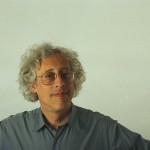 Howard Kissel was a familiar face on the New York theater scene for well over thirty years. Best remembered as the longtime drama critic of the New York Daily News and the biographer of David Merrick, he had an extraordinarily wide range of cultural interests, and in recent months he had been displaying them to excellent effect on his Huffington Post blog, to which he made his final posting mere days before he died.
Howard Kissel was a familiar face on the New York theater scene for well over thirty years. Best remembered as the longtime drama critic of the New York Daily News and the biographer of David Merrick, he had an extraordinarily wide range of cultural interests, and in recent months he had been displaying them to excellent effect on his Huffington Post blog, to which he made his final posting mere days before he died.
He was the best of all possible colleagues, forthright, funny, and exceedingly, unfailingly kind, not only to me but also to Mrs. T, who adored him. His last years, alas, were difficult, both for professional and personal reasons, and when he underwent a liver transplant, it was widely feared that his career was over. Incredibly, he was back at it a few months later, and though he was visibly weakened by his trials, he seemed never to lose his gusto.
Howard was the first critic in New York who went out of his way to befriend me. When I started writing about theater for The Wall Street Journal, he warned me of the dangers of burning out, and it pleased him greatly that I never showed any signs of doing so, any more than he did.
I cannot imagine never again seeing Howard’s unmistakable features in a Broadway theater. For me, there will always be an empty seat on the aisle.
* * *
Howard Kissel recites a Shakespeare sonnet for Michael Riedel at the Players Club:
UPDATE: Howard’s New York Daily News obituary is here.
Archives for February 24, 2012
TT: The right end of the telescope
My drama column in today’s Wall Street Journal is devoted in its entirety to Classic Stage Company’s revival of Galileo. Here’s an excerpt.
* * *
 Classic Stage Company, long one of New York’s most impressive Off-Broadway troupes, has been hitting the bull’s-eye with rousing consistency this season. Having just mounted a “Cherry Orchard” that topped my list of revivals in 2011, CSC has now gone on to crack an even tougher nut, Bertolt Brecht’s “Galileo.” Brian Kulick’s staging, in which F. Murray Abraham plays the Italian scientist who dared to pit the evidence of his eyes against the dictates of faith, is a profoundly and comprehensively satisfying achievement, the kind of show that sends you home feeling disinclined ever again to waste your time seeing anything less good.
Classic Stage Company, long one of New York’s most impressive Off-Broadway troupes, has been hitting the bull’s-eye with rousing consistency this season. Having just mounted a “Cherry Orchard” that topped my list of revivals in 2011, CSC has now gone on to crack an even tougher nut, Bertolt Brecht’s “Galileo.” Brian Kulick’s staging, in which F. Murray Abraham plays the Italian scientist who dared to pit the evidence of his eyes against the dictates of faith, is a profoundly and comprehensively satisfying achievement, the kind of show that sends you home feeling disinclined ever again to waste your time seeing anything less good.
Mr. Abraham is not, however, the star of the show. That honor belongs to Charles Laughton, whose translation of “Galileo” is being used in this production. Prepared in the closest possible collaboration with Brecht himself for the 1947 American premiere in Los Angeles, in which the star of “Mutiny on the Bounty” and “The Private Life of Henry VIII” played the title role, this English-language rendering of the second version of “Galileo” (there are three) is a wonder, a translation that is both speakable and memorable….
Why is so great a play so rarely performed in this country? Because Brecht conceived of “Galileo” as a grand pageant requiring a huge cast. In 2010 I saw a large-scale production of “Galileo” at Sarasota’s Asolo Repertory Theatre that was outstanding in every way, and it fielded a budget-busting cast of 24. The original 1947 staging, which transferred to Broadway later that year, used 34 actors. Mr. Kulick, by contrast, is presenting “Galileo” in CSC’s 180-seat black-box performing space with just nine actors, most of whom play multiple roles. While this intimate approach inevitably deprives “Galileo” of its cavalcade-like aspect, it also allows Mr. Kulick and his cast to enact the play with Shakespearean speed and directness. You feel as though you’re watching far-off historical events through Galileo’s own powerful telescope, an impression reinforced by Adrianne Lobel’s amazing set, which turns the theater into a miniature planetarium.
Mr. Abraham gives us a lean, sardonic Galileo (he looks almost like one of El Greco’s famished saints) whose avowals of the joys of the flesh never quite ring true. That, however, is the only false note in his performance, which conveys Galileo’s hope and anguish with absolute authority….
* * *
Read the whole thing here.
TT: Almanac
“Small-town people manage to endure the inexorable proximity of their lives only by deceiving themselves into thinking that nobody knows what they couldn’t not know.”
William Maxwell, Ancestors: A Family History
